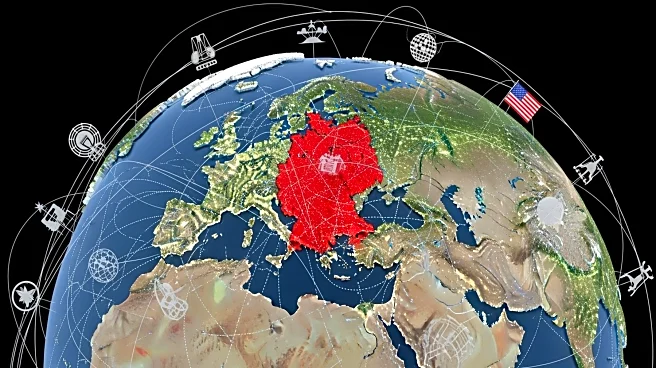What's Happening?
A senior lawmaker from Germany's Social Democrats, Adis Ahmetovic, has called for a reevaluation of Germany's China policy following the postponement of Foreign Minister Johann Wadephul's trip to Beijing.
The cancellation was due to Beijing confirming only one of Wadephul's requested meetings, highlighting increasing tensions over trade and security issues. Germany, as Europe's largest economy, relies heavily on China, its biggest trading partner, for critical components such as rare earths and semiconductors. These areas have faced bottlenecks amid global trade tensions. Ahmetovic emphasized the need for a strategic foreign policy focusing on dialogue and long-term interests, while Wadephul had planned to urge China to relax export restrictions during his visit.
Why It's Important?
The call for a strategic reevaluation of Germany's China policy underscores the complexities of international trade relations, particularly between major economies. Germany's reliance on China for essential components like rare earths and semiconductors makes it vulnerable to trade policy shifts. The postponement of Wadephul's trip and the call for policy change reflect broader concerns about China's use of trade as leverage. This situation could impact industries reliant on these components, potentially leading to increased costs and supply chain disruptions. The emphasis on fair trade and strategic dialogue highlights the need for balanced relations to ensure economic stability.
What's Next?
Germany may seek to deepen discussions with China on trade, security, and human rights issues, aiming to stabilize relations and address bottlenecks in critical component supplies. The German government might explore alternative sources for rare earths and semiconductors to mitigate dependency on China. Additionally, the situation could prompt other European nations to reassess their trade strategies with China, potentially leading to a unified approach within the EU. Stakeholders in industries affected by these tensions will likely monitor developments closely, advocating for policies that ensure stable and fair trade practices.
Beyond the Headlines
The call for a strategic rethink of Germany's China policy may have broader implications for international diplomacy and trade relations. It highlights the ethical considerations of engaging with countries that use trade as a political tool, raising questions about the balance between economic interests and human rights. The situation could lead to long-term shifts in global trade dynamics, influencing how countries negotiate and manage dependencies on critical resources. As Germany navigates these challenges, it may set precedents for other nations facing similar dilemmas.











